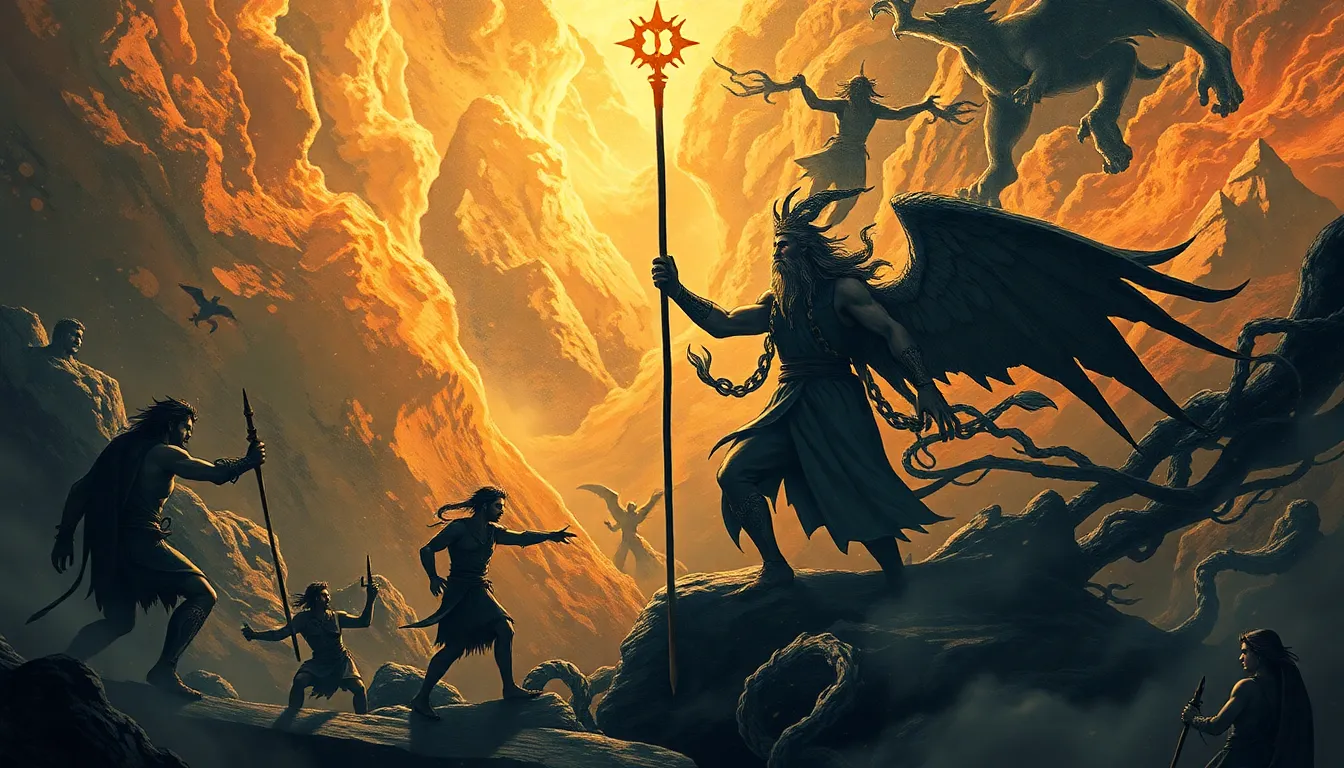Moral Myths That Spark Debate: Controversial Legends Explored
I. Introduction to Moral Myths
Moral myths are narratives that shape our understanding of right and wrong, often rooted in cultural traditions and historical contexts. These legends serve not just as stories, but as frameworks through which individuals and societies navigate ethical dilemmas and moral landscapes.
Examining these moral legends is crucial; they reflect societal values, influence behavior, and can either promote harmony or incite conflict. This article will delve into various moral myths, exploring their origins, implications, and the debates they spark in contemporary society.
II. The Origins of Moral Myths
The roots of moral myths can be traced back to ancient civilizations, where storytelling served as a means of imparting ethical lessons. These legends often emerged from:
- Historical Context: Events and experiences that shaped societies influenced the creation of moral narratives.
- Cultural Influences: Different cultures contributed unique perspectives, leading to a diverse array of moral myths.
- Folklore and Storytelling: Oral traditions played a significant role in disseminating moral beliefs and practices.
III. The Myth of the Noble Savage
The concept of the noble savage refers to the idea that humans in their natural state are inherently good, and that civilization corrupts this purity. This myth has historical roots in Enlightenment thinking and has been popularized through literature and art.
Implications for contemporary ethics include debates about human nature, the impact of society on morality, and environmental ethics. Critics argue that this myth oversimplifies complex social issues and can lead to a romanticization of indigenous cultures.
Counterarguments emphasize the need for a nuanced understanding of human behavior that considers both nature and nurture.
IV. The Trolley Problem: A Modern Moral Dilemma
The trolley problem is a thought experiment that poses a moral dilemma: should one pull a lever to divert a runaway trolley onto a track where it will kill one person instead of five? This scenario has sparked extensive philosophical debate.
Variations of the trolley scenario include:
- The footbridge version, where a bystander must choose to push a large person off a bridge to stop the trolley.
- The loop track version, where the trolley will return to hit the five unless a person is sacrificed.
Public perceptions of the trolley problem often reflect deeper philosophical beliefs about utilitarianism versus deontological ethics, leading to lively discussions about the nature of morality.
V. The Myth of the “Self-Made” Individual
The myth of the self-made individual highlights the belief that anyone can achieve success through hard work and determination, a narrative prevalent in American culture. This notion has implications for how society views success and morality.
Critics point out that this myth overlooks systemic barriers and inequalities that hinder many from achieving success, including:
- Economic disparity
- Racial and gender discrimination
- Access to education and resources
Discussions surrounding privilege and systemic barriers challenge the moral implications of the self-made myth, urging a more comprehensive understanding of success.
VI. The Legend of the Just War
The just war theory posits that wars can be morally justifiable under certain conditions. This legend has historical roots in religious and philosophical traditions, with notable examples throughout history.
Ethical considerations in warfare include the principles of discrimination and proportionality, which seek to minimize harm to civilians and ensure that the response is proportional to the threat.
Controversial debates surrounding just war theory often arise in discussions about military interventions, humanitarian crises, and the ethics of warfare.
VII. The Myth of Redemption: Can Everyone Be Saved?
The narrative of redemption is a powerful myth found in various cultures, suggesting that individuals can be forgiven and transformed regardless of their past actions. This myth carries psychological and moral implications.
Believing in universal redemption can foster compassion and hope, but it may also lead to moral complacency. Case studies of controversial figures, such as politicians or criminals, often elicit mixed public opinions regarding their potential for redemption.
VIII. The Myth of Moral Absolutism vs. Moral Relativism
Moral absolutism and moral relativism present two opposing views on ethics. Moral absolutism holds that there are universal moral truths, while moral relativism posits that morality is shaped by cultural and societal contexts.
The impacts of each perspective include:
- Moral Absolutism: Promotes a clear, often rigid framework for moral decision-making.
- Moral Relativism: Encourages understanding and tolerance of diverse moral perspectives.
Contemporary debates often focus on the applicability of these perspectives in a globalized world, where cultural clashes and differing moral beliefs are increasingly common.
IX. The Role of Technology in Shaping Moral Myths
In the digital age, technology has a profound impact on moral myths. Social media and digital narratives shape public perception and influence moral discussions.
Ethical dilemmas posed by advancements in technology include:
- Privacy concerns and data ethics
- The impact of artificial intelligence on decision-making
- Cyberbullying and online harassment
Technology can both challenge and reinforce moral myths, creating new ethical frameworks that require critical examination.
X. Conclusion: The Future of Moral Myths
In summary, moral myths play a vital role in shaping our understanding of ethics and morality. From the noble savage to the just war, these legends spark debates that reflect our values and beliefs.
The ongoing relevance of moral myths in modern society underscores the importance of critical thinking and open dialogue about moral issues. As we navigate a rapidly changing world, examining these myths will be essential in fostering understanding and addressing ethical dilemmas.



